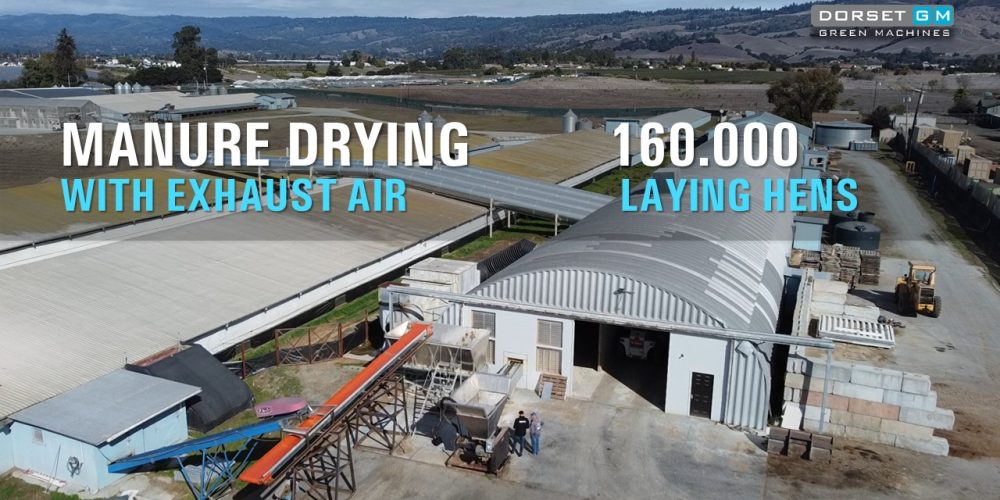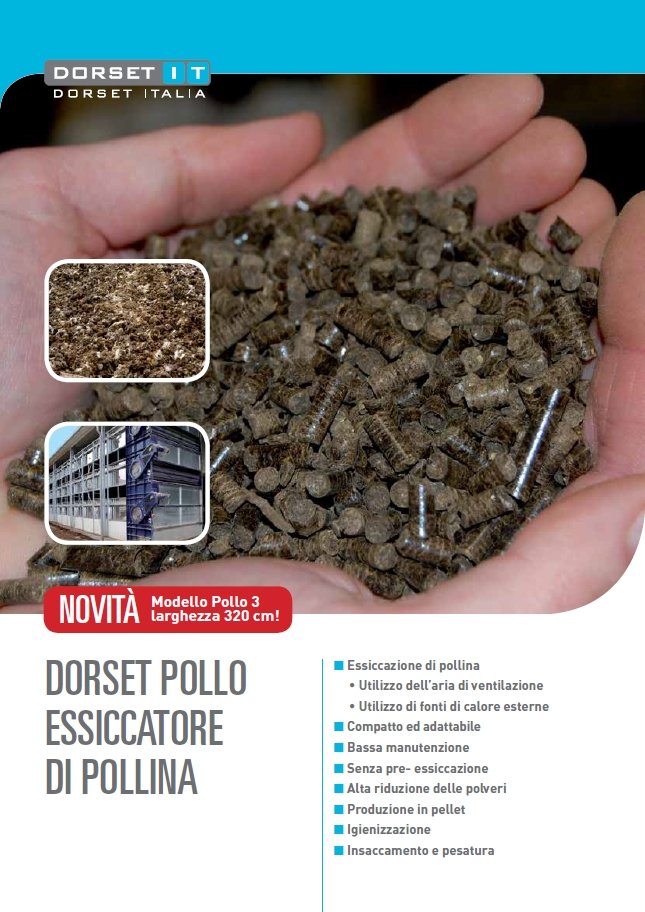In this project poultry manure from various farmhouses is processed at one plant. The manure is dried, pelleted and sanitized to produce an organic fertilizer pellet suitable for sale and export. Processing poultry manure directly at the site is economical and reduces smell and emissions.

Why would I want to dry fresh chicken manure?
1) the dried manure has significant value as organic fertiliser:
Drying removes the moisture, while containing the nitrogen and other components relevant for creating a valuable fertiliser.
2) reduction of ammonia emission:
Wet manure creates ammonia emission. Because the system removes the wet manure from the barn daily and dries the manure within two days, ammonia emission is prevented.
3) reduced odour annoyance:
For the same reasons as the above, the odour production is significantly reduced. Odour production from wet manure or composing manure is a thing of the past with dried manure.
4) reduction of dust pollution:
When using stable air for the drying process, the drier works as a dust filtration, reducing dust pollution from the stable air to an average of 70%.
5) improved hygiene at the farm:
Drying can be done next to the barn. No more storage of wet manure occurs near the laying hens. Reduced dust, ammonia and odour emissions improve the working conditions of personal and neighbours.
DRYING PROVIDES A BETTER ALTERNATIVE TO TRADITIONAL COMPOSTING
Drying poultry manure compared to composting poultry manure:
– drying has a higher electricity requirement
– the drying process is a lot quicker, because it only takes two days to dry the manure when using stable air. This is also the case in the winter season.
– drying only has a fraction of the ammonia and odour emission
– drying has significantly (ca. 50%) less loss of Nitrogen, which results in a much higher nitrogen content in the final product
– the drier works as a dust filtration for stable air
– drying uses less space on the farm
– drying is not a bacterial process and is therefore easy to control
– when pelletizing after drying, the final product has a smaller volume then the composted end product
– composting make the minerals less fixated in organic materials.
It is important to take notice that there might be a fundamental difference between the end-products “compost” and “organic fertilizer”:
– Compost: generally, the most important function of compost is to be a soil improver, to create a structure to the soil with sufficient pores and humus (aeration), to have a balanced soil with good conditions for micro-organisms, worms, etc. The addition of nutrients has a minor role;
– Organic fertilizer: the main role is to provide nutrients to the soil that can be taken-up by the plants, such that less inorganic fertilizer is needed.














